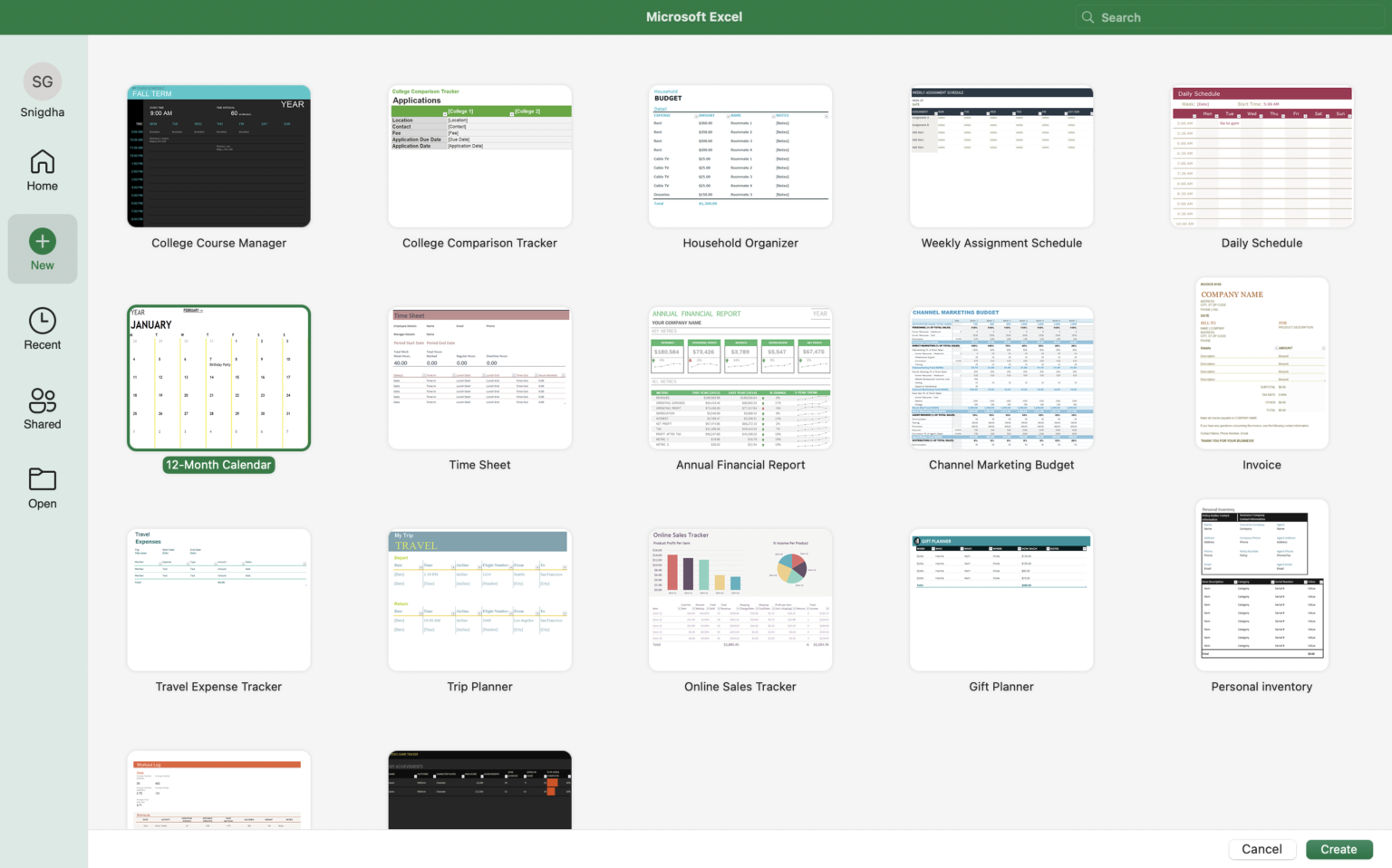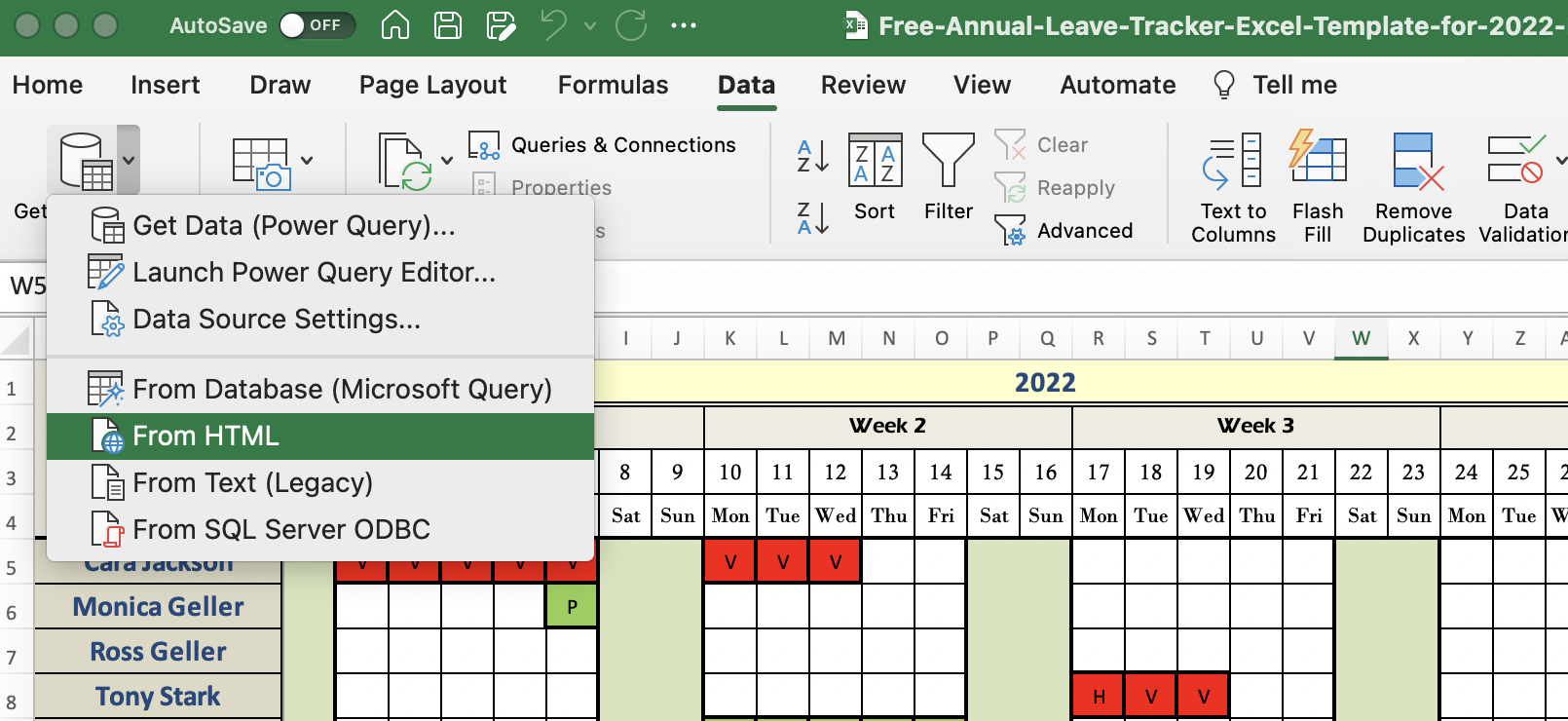Last updated on July 17, 2025
With countless national holidays to keep track of that differ across locations, every manager knows the struggle that comes with doing everything manually. Tracking everything for your global offices feels like an overwhelming task. We get it.
While it might not have the bells and whistles of dedicated PTO software, Excel is a budget-friendly option that makes this process easier. Curious? Don’t worry, we’re going to show you how it all works.
Why Use Excel for Your Holiday Calendar?
Excel is a straightforward and inexpensive way to track PTO. Here’s why:
For starters, it’s already installed on most workplace computers, meaning no extra costs or software to learn. Plus, it’s endlessly customizable. Excel is especially appealing for small teams or startups working within tight budgets and simple holiday tracking needs. It allows managers to create a calendar that includes national holidays tailored to each location without the added expense of specialized tools.
However, this flexibility comes with a trade-off. Everything in Excel is manual, from creating the calendar to updating holidays and setting up reminders. While manageable for smaller teams, this process can quickly become overwhelming as businesses scale to several regions.
It’s important to approach Excel with realistic expectations. Without automation or integrations, you’re left with manual updates that can lead to errors. And as teams grow, maintaining accuracy and efficiency in Excel can become an uphill battle.
Benefits of Tracking Holidays in Excel
Tracking national holidays in Excel helps organizations stay organized, aligned, and prepared. Here’s how it can make a difference:
- Compliance with Labor Laws: By centralizing national holidays, you can easily ensure your team follows regional labor laws. This prevents accidental scheduling on non-working days and avoids compliance issues—You’ll thank us later.
- Improve Planning: Having a clear view of national holidays allows businesses to anticipate office closures or reduced operations. Teams can use this information to plan around these days, adjust timelines, and reschedule deadlines.
- Enhance Global Coordination: For companies with teams in multiple regions, Excel provides a simple way to track varying holiday schedules. Using filters or tabs, you can ensure each region’s calendar reflects its unique holidays, reducing the risk of miscommunication.
- Increase Efficiency: A shared holiday calendar eliminates the guesswork around official days off. Teams can quickly align without asking loads of questions, saving time and improving overall efficiency.
How to Build a Holiday Calendar in Excel
Setting up an effective holiday calendar in Excel can require some VBA coding or similar advanced skills, but we’ve created some simple options that are accessible for most users with basic Excel knowledge.
Start with an Excel Calendar Template
Why reinvent the wheel when Excel provides ready-made templates?
Open Excel and search for “calendar” in the template library and choose a format, amongst the many options, that suits your team’s workflow.

Not into any of those options? Try to make your own PTO tracker template in Excel or download our customizable Excel sheet!
Customize for Your Team
Manually Input Data
You want to make sure your holiday calendar in Excel clearly indicates key dates and a legend or code can help make that happen. You can use labels like “NH” to mark non-working days and “BP” to highlight busy periods to help teams plan around them.
All you’ll need to do is input your chosen codes on a separate table and then populate your holiday calendar with this information. For example, we’ve blocked off all applicable national holidays (the 1st and 17th) in the month of January 2022 for those located in the state of California. This step is super simple but it will take some time to get done.
![]()
Use Pivot Tables for Larger Teams
If the thought of manually blocking off each location’s holidays every month sounds too tedious (and rightfully so,) another alternative is creating a pivot table in Excel.
Especially for big teams, pivot tables can simplify things. This table serves as an easy way for your employees to view all holidays during the year at a quick glance.
Here’s what you’ll need to do:
- Add a “Holidays” tab to your workbook.
- Include columns for Day, Date, and Holiday Type.
- Group data by department or month to create an easy-to-read overview.
Integrate Data from Other Tools
A final option to consider when customizing your holiday calendar in Excel is integrating data from a pre-existing calendar. Yes, you read that right! If you have an online calendar with key data, rather than inputting everything manually, you can merge the information automatically into Excel.
Import that data into Excel to streamline updates:
- For Windows users, go to the Data tab, click Get External Data and select the “From Web” option. A pop-up window will appear, allowing you to enter the URL of the file you want to import. Just paste the URL, and you’re good to go.
- For Mac users, save the calendar as an HTML file and import it using Excel’s “Get External Data” feature.

Considering an Upgrade?
Excel is a solid starting point for managing your team’s holiday calendar. It’s familiar, flexible, and cost-effective—qualities that make it particularly appealing to small businesses or startups. With the right setup, Excel can help you minimize scheduling conflicts, ensure coverage, and keep everyone in the loop.
However, as your team grows or your scheduling needs become more complex, Excel may no longer meet the mark. When Excel starts feeling like more work than it’s worth, it might be time to explore tools designed for leave management.
Vacation Tracker offers the automation, integrations, and scalability needed to keep your team’s time off organized, no manual updates required.
Explore benefits like:
- Improved Visibility: Quickly see who’s available and filter by location, department, or custom labels.
- Seamless Integrations: Integrate with tools like Slack, Microsoft Teams, or Google Workspace to manage your leave without leaving your software of choice.
- Real-Time Calendar Sync: Add your personal or team leave data seamlessly in Google Calendar, Outlook, or iCal.
- Customizable Features: Tailor leave types, policies, national holidays, and locations to your organization’s unique needs.
- Easy Onboarding: Be up and running in minutes with a user-friendly interface.
Ready to simplify your holiday management? Discover how Vacation Tracker can help your team stay aligned and stress-free today!

Claudia
Claudia is an experienced marketer with a passion for writing and creating engaging content that connects with readers.




